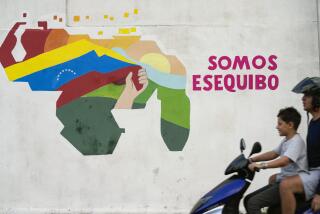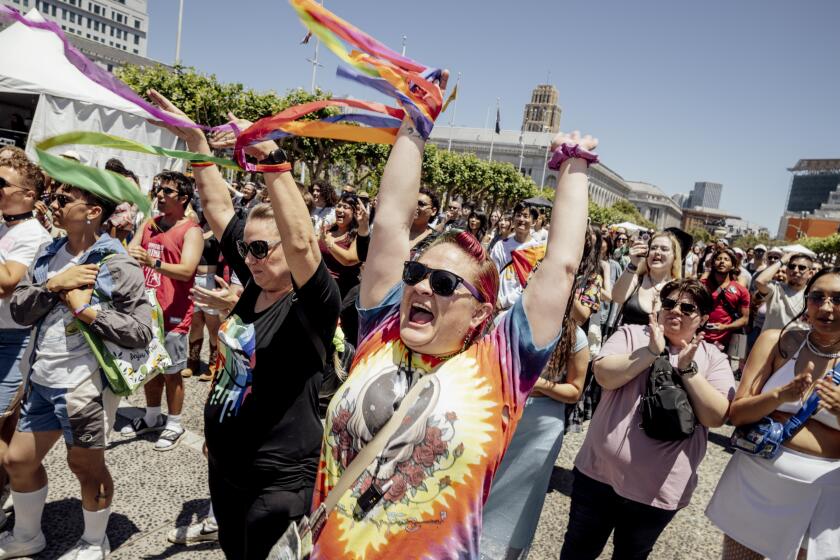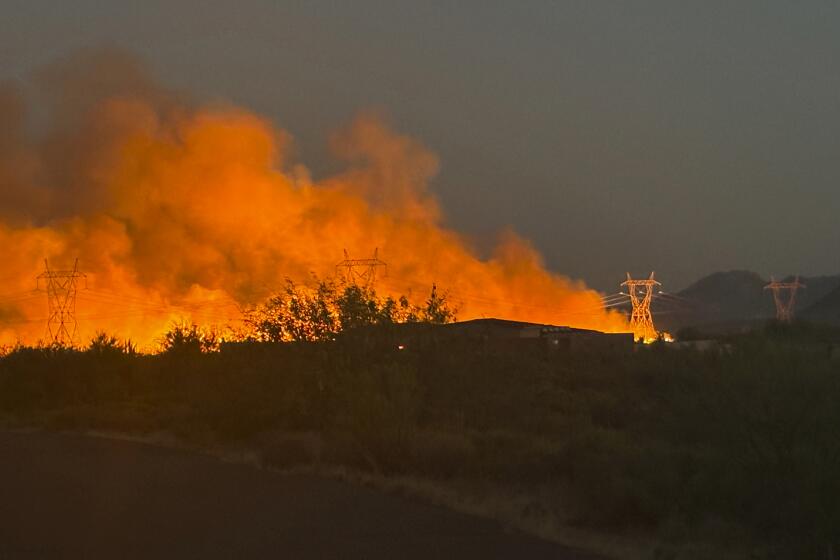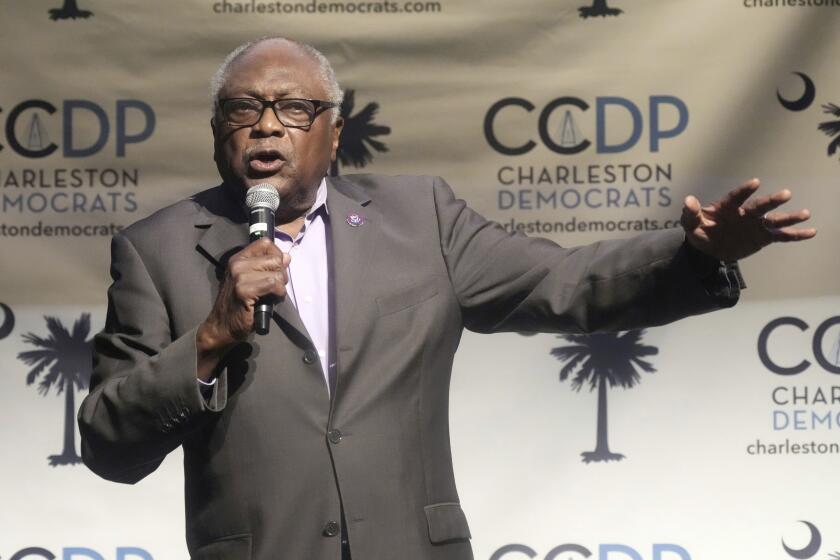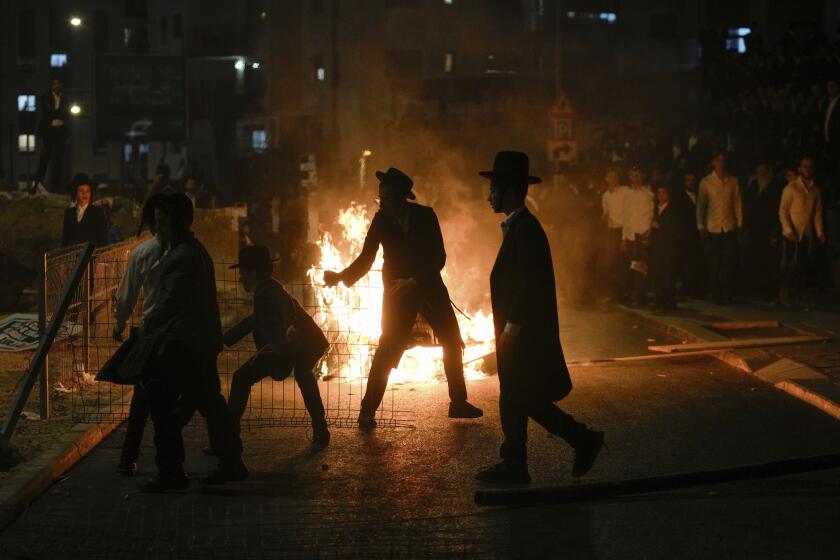At Trump’s behest, Latin American countries invoke rarely used treaty against Venezuela
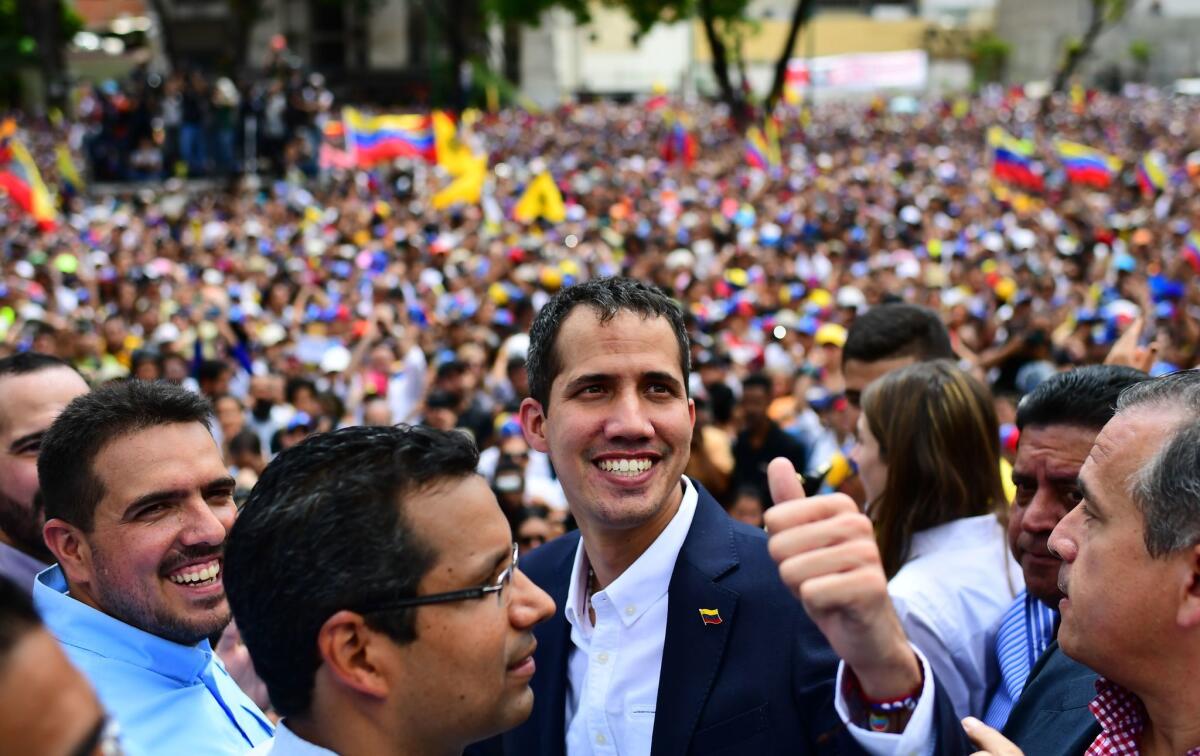
At U.S. urging, leaders from numerous Latin American countries on Monday voted overwhelmingly to crack down on members of Venezuela’s socialist government who have committed acts of corruption, human rights abuse and drug trafficking.
Members of the so-called Rio Treaty — a rarely invoked mutual defense pact among the U.S., Canada and several Latin American and Caribbean nations — voted 16 to 1 to approve the measures. Uruguay opposed, Trinidad and Tobago abstained, and Cuba was absent.
Colombian Foreign Minister Carlos Holmes Trujillo said the countries agreed to “all available measures” to pursue, prosecute and extradite suspects from the government of President Nicolas Maduro and to freeze the targeted individuals’ assets in any of the treaty countries.
Holmes Trujillo said the governments, meeting on the margins of the United Nations General Assembly, did not consider military actions at this point. They also agreed to set up teams of financial crime investigators.
“Many democracies are now acting together to create the conditions for ... democracy and liberty to return to the Venezuelan people,” Holmes Trujillo said.
It remains to be seen how the measures will be enacted and enforced. In theory, however, it would mark a much stronger action plan against a country already reeling under crushing poverty, deprivation and political chaos.
The 1947 Rio Treaty has not been activated since the Sept. 11, 2001, terrorist attacks in the U.S. The accord establishes that a threat to one member is a threat to all.
The annual U.N. summit, the world’s largest diplomatic stage, provides a charged platform and unparalleled audience for Maduro opponents trying to unseat him — a campaign backed by the Trump administration that has largely floundered.
In addition to the Rio Treaty meeting, the so-called Lima Group, a smaller coalition of Latin American countries focused on Venezuela, was meeting, and opposition groups were being hosted by think tanks and holding bilateral talks with Trump administration officials — including the president on Wednesday.
Secretary of State Michael R. Pompeo announced last week that the Rio Treaty would be invoked on behalf of Juan Guaido, the Venezuelan opposition leader whom the U.S. and numerous other countries recognized as the legitimate leader of the once-oil-rich South American nation. Pompeo cited “bellicose actions” by Venezuela in purportedly deploying military units along its border with Colombia.
Eighteen Western Hemisphere countries are signatories to the treaty. Venezuela dropped out of the pact, as did Mexico. The Venezuelan opposition, which sought to rejoin the treaty, was allowed to vote on Monday.
“The one who has closed any door for negotiation, for elections, for national unity is Maduro himself,” Julio Borges, who is Guiado’s representative for foreign affairs, said Monday in an interview. “We must use all the tools we have to push him.”
Borges spoke in the Venezuelan Consulate in New York, which anti-Maduro forces managed to take possession of only three months ago. They said the previous occupants, Maduro loyalists, ransacked the stately but faded building before leaving; there was little furniture and paint splotches on the bare walls.
Colombia is formally accusing Venezuela of harboring “terrorists,” mostly dissident guerrillas who oppose the Bogota government and refused to join an ongoing peace process that in 2016 ended the hemisphere’s longest civil war.
Ahead of Monday’s meeting, Colombian President Ivan Duque again condemned Maduro, accusing him of crimes against humanity.
“It is not only a dictatorship, it is a narco-dictatorship,” Duque told a group of Colombians in suburban New York on Sunday. “A dictatorship that has destroyed freedom of press, the institutions, has torn apart the people.”
Duque, from a right-wing party that did not participate in drafting the Colombian peace accords, has won enthusiastic backing from President Trump.
Dozens of sanctions have been imposed by the Trump and Obama administrations, but Maduro’s opponents hope more of Latin America will join the pressure campaign, along with Europe.
Maduro is not expected to attend the U.N. General Assembly, but representatives of Guaido are in New York. The U.N. still recognizes Maduro.
The U.S., Colombia and several other regional leaders argue that the crisis in Venezuela is destabilizing the entire continent. More than 4 million Venezuelans have fled hunger and disease in their homeland and moved into neighboring countries.
Colombia’s ambassador to the United States, Francisco Santos, said his country should serve as a model in immigration because it had welcomed the refugees and provided temporary shelter and other relief. But he said Colombians would eventually lose patience as the country’s infrastructure and public budget become overwhelmed.
The United States, which has refused to grant special status for Venezuelan refugees, has long opposed Maduro and launched a concerted campaign in January backing Guaido and tightening sanctions on Venezuelan banks and oil. Administration officials at the time suggested Maduro would fall quickly.
But the former bus driver and autocratic leader remains in place, and the latest attempt at negotiations collapsed.
Borges, along with other members of the opposition, insist the sanctions are doing severe damage to Maduro’s government by creating fissures in the military and other security forces. Borges said Maduro stayed in power thanks only to Cuba and Russia.
“Cuba is the real political mastermind” behind Maduro, Borges said, having shared tactics for harsh repression of dissidents and social activists.
More to Read
Start your day right
Sign up for Essential California for news, features and recommendations from the L.A. Times and beyond in your inbox six days a week.
You may occasionally receive promotional content from the Los Angeles Times.


